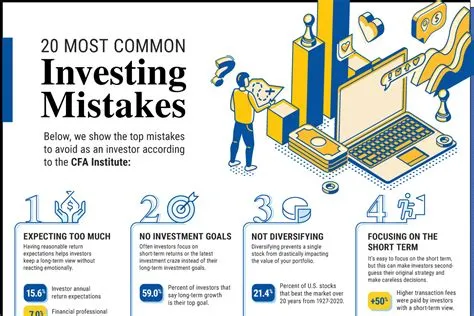Hey there! Feeling overwhelmed? Stressed out? Like your mental energy is running on empty? You’re not alone. Millions of people are searching for ways to improve their mental well-being, and thankfully, technology offers a helping hand in the form of mental fitness apps. These aren’t just apps; they’re your pocket-sized mental health coaches, ready to help you navigate the ups and downs of life.
But with so many apps out there, how do you choose the right one for you? It’s like trying to find the perfect pair of shoes – you need the right fit for your needs and personality. This guide will help you navigate the world of mental fitness apps, exploring their features, benefits, and potential drawbacks, so you can find the perfect app to support your mental well-being journey.
Types of Mental Fitness Apps: Finding Your Perfect Match
The app store is bursting with mental fitness apps, each offering a unique approach to mental wellness. Some focus on mindfulness and meditation, guiding you through calming exercises to reduce stress and anxiety. Think of these as your mental yoga instructors, helping you stretch and relax your mind. Others focus on cognitive behavioral therapy (CBT), helping you identify and challenge negative thought patterns. These are like mental detectives, helping you uncover the root causes of your struggles.
Then there are apps that track your mood and sleep, providing valuable insights into your mental health patterns. These are your personal mental health dashboards, offering a clear picture of your well-being. And finally, some apps offer a combination of techniques, providing a holistic approach to mental wellness. These are your all-in-one mental fitness centers, catering to a wide range of needs.
Features to Look For in a Mental Fitness App
Choosing the right mental fitness app is a personal journey. What works for one person might not work for another. However, there are some key features to consider. First, think about the app’s user interface (UI). Is it intuitive and easy to navigate? You want an app that’s user-friendly, not something that adds to your stress levels! The design should be calming and inviting, a digital oasis where you can find peace.
Next, consider the app’s content. Does it offer a variety of exercises and techniques? Does it cater to your specific needs and goals? Variety is key. You don’t want an app that offers only one type of meditation, for example. A diverse range of tools ensures you have access to different strategies when you need them.
Privacy and security are also crucial. Does the app protect your personal data? Does it have a clear privacy policy? Your mental health information is sensitive, so choose an app you trust to safeguard your data. It’s like entrusting your secrets to a confidant – you need to be certain of their discretion.
Finally, consider the cost. Many mental fitness apps offer free versions, but some require a subscription. Decide how much you’re willing to invest in your mental well-being. Remember, your mental health is invaluable, but you should still find a balance between your budget and the app’s features.
Benefits of Using Mental Fitness Apps
Mental fitness apps offer a wealth of benefits. They provide easy access to mental health resources, anytime, anywhere. It’s like having a personal therapist in your pocket, available at the touch of a button. This accessibility can be particularly helpful for people who may not have easy access to traditional mental health services.
These apps can also help you develop healthy coping mechanisms for stress and anxiety. They can teach you mindfulness techniques, such as deep breathing exercises and meditation, to help you manage challenging emotions. This is like building a mental toolkit, equipping you with the resources you need to handle life’s difficulties.
Moreover, mental fitness apps can track your progress, allowing you to monitor your mental well-being over time. This data can be incredibly insightful, showing you patterns and trends in your mood and sleep. It’s like having a personal data analyst for your mind, providing you with valuable insights into your mental health journey.
And let’s not forget the convenience factor! You can use these apps at your own pace, in the comfort of your own home, eliminating the need for travel and appointments. This flexibility can be especially beneficial for individuals with busy schedules or those who find it difficult to attend traditional therapy sessions.
Potential Drawbacks of Mental Fitness Apps
While mental fitness apps offer many benefits, it’s important to acknowledge their limitations. They shouldn’t replace professional mental health care. Think of them as valuable supplements, not substitutes. If you’re struggling with severe mental health issues, it’s crucial to seek help from a qualified professional.
Also, not all apps are created equal. Some may lack scientific backing or may contain inaccurate information. It’s vital to do your research and choose reputable apps with evidence-based techniques. Look for apps with transparent methodologies and qualified professionals involved in their development. Don’t fall for flashy marketing; focus on the substance.
Additionally, reliance on apps alone can lead to a lack of human interaction, which is crucial for mental well-being. These apps are tools, but building strong relationships and connecting with others remain vital components of a healthy life. Think of it as a balanced diet; you need a variety of nutrients, and personal connection is a vital ingredient.
Choosing the Right App for You
So, how do you choose the right mental fitness app for your needs? Start by identifying your goals. What areas of your mental well-being do you want to improve? Are you looking to reduce stress, improve your sleep, or manage anxiety? Once you’ve pinpointed your goals, you can start researching apps that address these specific areas.
Read reviews and compare features. Look for apps with positive user feedback and a wide range of tools and techniques. Don’t just focus on the flashy marketing; dig deeper and explore the app’s functionality and user experience. Consider trying out the free versions of several apps before committing to a paid subscription.
Remember, finding the right app is a process. It might take some time and experimentation before you find the perfect fit. Be patient with yourself and don’t be afraid to try different apps until you find one that resonates with you. Your mental well-being is a journey, not a race. There’s no rush to find the perfect app; the important thing is to find an app that helps you on your path to better mental health.
Conclusion
Mental fitness apps offer a powerful tool for improving mental well-being, providing accessible and convenient resources for managing stress, anxiety, and other mental health challenges. While they shouldn’t replace professional help, they can be incredibly valuable supplements to traditional therapy and self-care practices. By carefully considering your individual needs and researching available apps, you can find the perfect digital companion to support your journey toward a healthier and happier you. Remember to prioritize your mental health and seek professional help when needed. Your well-being is an investment worth making.
FAQs
- Are mental fitness apps safe? The safety of mental fitness apps varies. Always check reviews and privacy policies before downloading. Reputable apps prioritize data security and user well-being. However, these apps are not a substitute for professional help, and you should always consult with a healthcare provider for any serious mental health concerns.
- Do I need to pay for a mental fitness app? Many apps offer free versions with limited features, while others require a subscription for full access. The cost depends on the app and the features it offers. Consider your budget and the features you need when making a decision.
- How do I know if a mental fitness app is right for me? Consider your specific mental health needs and goals. Read reviews, check for evidence-based practices, and try out free versions before committing to a subscription. Look for an app with a user-friendly interface and a variety of techniques that resonate with you.
- Can I use a mental fitness app alongside therapy? Absolutely! Mental fitness apps can complement professional therapy by providing additional tools and support between sessions. However, never use an app as a replacement for professional help.
- What if a mental fitness app isn’t helping? If you’re not seeing positive results after consistently using a mental fitness app, don’t hesitate to try a different one or consult a mental health professional. It’s important to find what works best for you.

